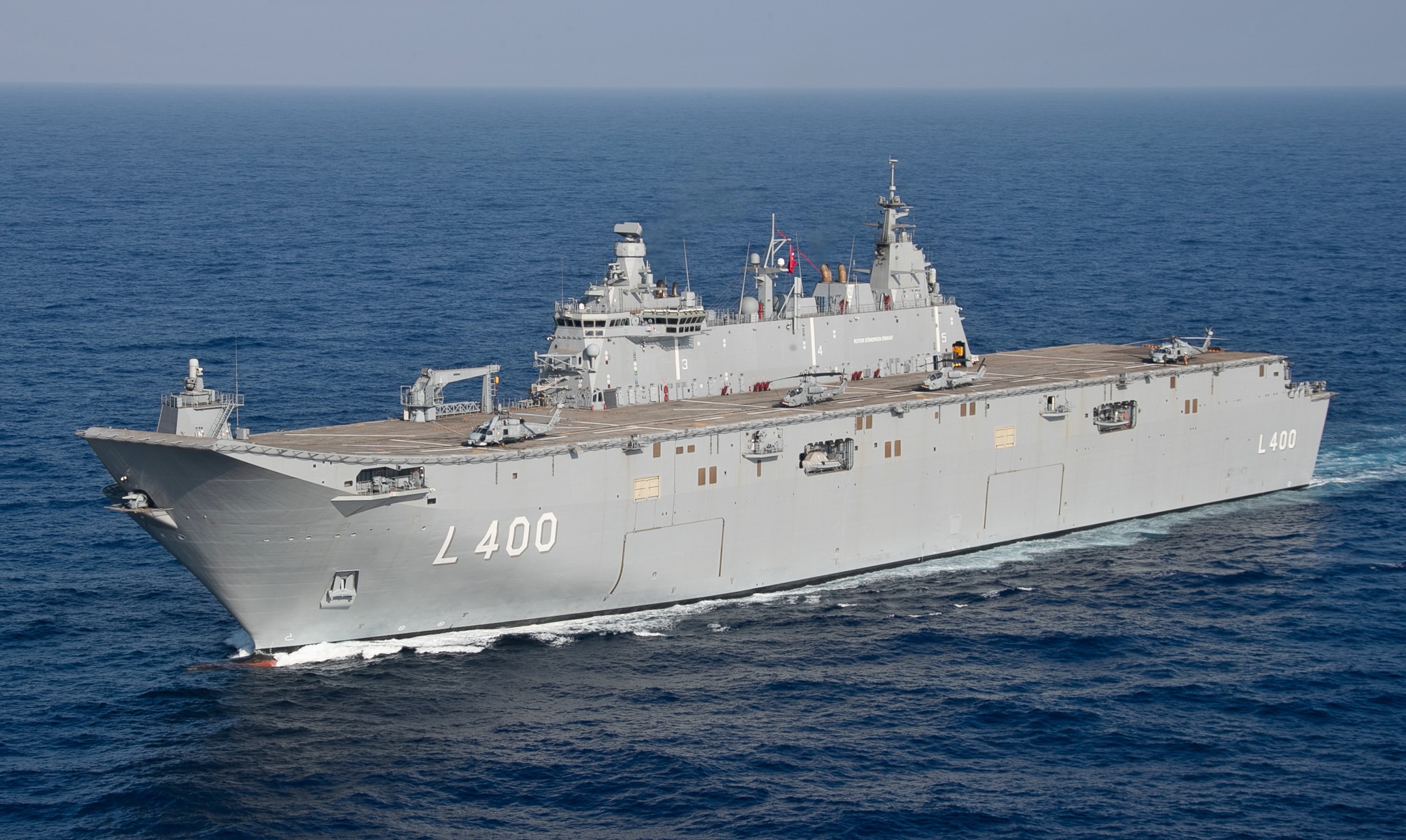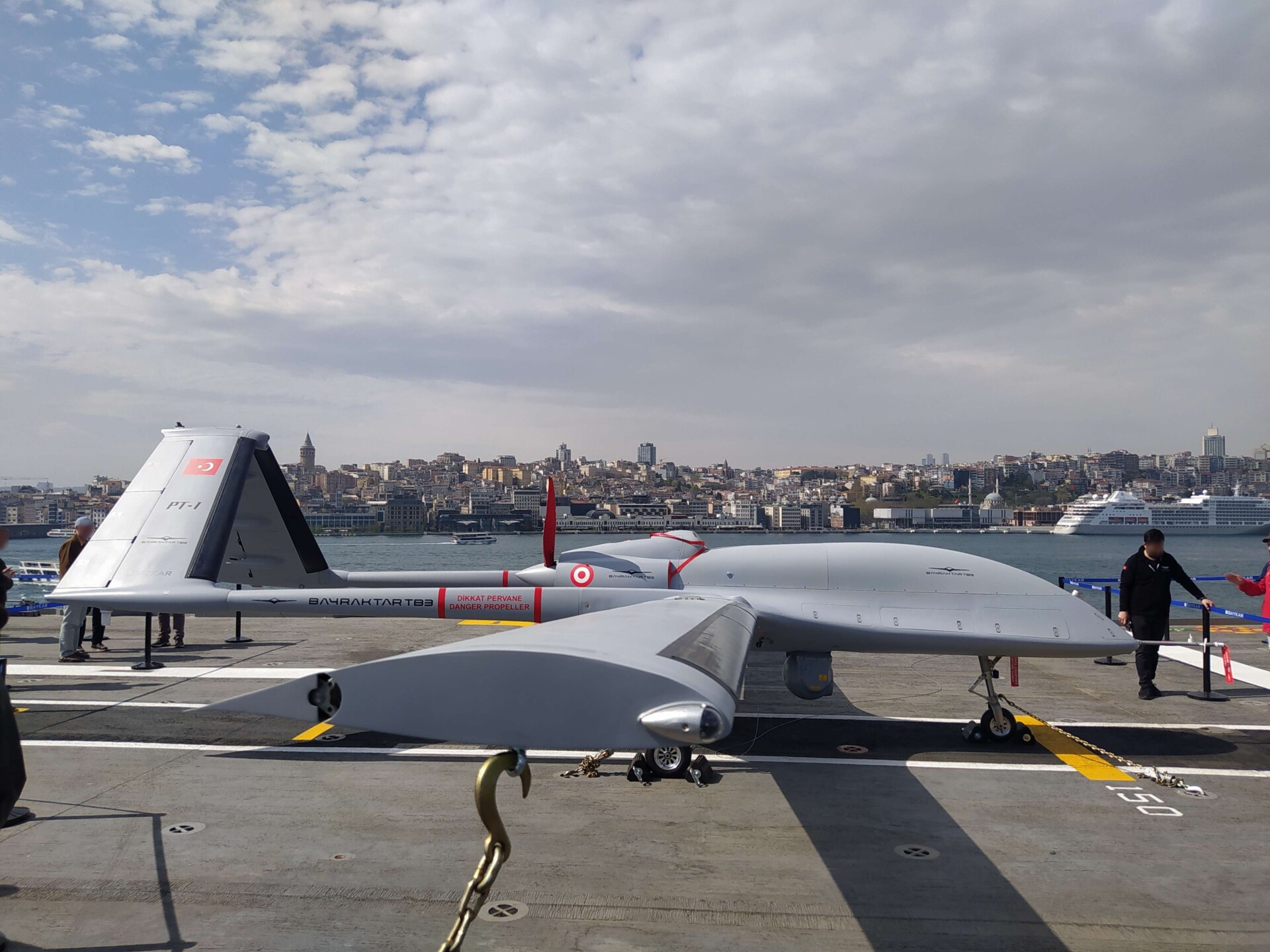For the First Time, Türkiye Unveils Design of Its First Aircraft Carrier
With its first aircraft carrier, Türkiye gains the capability to project its military power into areas and regions far beyond its maritime borders, further solidifying Ankara's status as a regional power.
(DEFENCE SECURITY ASIA) – At the SAHA EXPO 2024 exhibition held in Istanbul, Türkiye’s national aircraft carrier design, known locally as the Milli Uçak Gemisi (MUGEM), which will be developed by the Turkish Navy, was revealed for the first time.
Türkiye plans to build its own aircraft carrier for naval use, a vessel expected to be twice the size of its largest current ship, the TCG Anadolu, which has a displacement of 28,000 tons and measures 230 meters in length.
The Mediterranean nation first announced its intentions to construct an aircraft carrier in February, during President Recep Tayyip Erdogan’s visit to Istanbul Shipyard Design Project Office (DPO).
According to DPO’s statements in February, Türkiye’s first aircraft carrier will be constructed entirely with domestic expertise and resources, without foreign assistance.
This decision underscores the nation’s capability in undertaking large-scale naval defense projects.

While Türkiye’s government has not yet announced a specific date to begin construction of its first national aircraft carrier, the near-finalized design suggests that construction is likely to commence soon.
Possessing an aircraft carrier would further enhance Türkiye’s standing as a Mediterranean power, even though it will be conventionally powered rather than nuclear.
An aircraft carrier would enable Türkiye to project its military power across nearby regions.
According to information from the SAHA EXPO, Türkiye’s domestically designed carrier will be the largest and most significant warship in the country’s military history.
The vessel is expected to measure 285 meters in length and 72 meters in width, with a displacement reaching 60,000 tons.

This size classifies Türkiye’s first aircraft carrier as a medium-sized vessel, similar to Britain’s HMS Queen Elizabeth and HMS Prince of Wales, though smaller than U.S. carriers, which displace up to 100,000 tons.
Türkiye’s aircraft carrier is designed to reach a top speed of 25 knots and has an operational range of 10,000 nautical miles at 14 knots.
Four General Electric LM2500 gas turbine engines and two adjustable propellers will power the ship, providing the agility required for naval maneuvers.
The carrier will feature three runways—two for landings and one for take-offs.
Although initially planning to use a Modular Ramp, Türkiye has opted for a locally-developed Catapult System for future operations.
The ship will accommodate around 50 aircraft, including both manned and unmanned assets, as well as utility and attack helicopters.


Among these are the “Hurjet” light combat aircraft, the ANKA-3 Unmanned Combat Aerial Vehicle (UCAV), the Bayraktar TB3 UCAV, and the Kizilelma unmanned fighter.
About 20 of these combat aircraft will be stationed on deck, while the remaining 30 will be housed in the hangar.
Preliminary information suggests Türkiye may also be developing a naval variant of the fifth-generation “KAAN” fighter, which could eventually operate from this carrier, though details are still in early stages.
The carrier is expected to be staffed by a crew of approximately 800 personnel.
In terms of armament, the vessel will be equipped with an array of defense systems, including a 32-cell (2×16) MİDLAS Vertical Launch System (VLS) and four GÖKDENİZ Close-In Weapon Systems (CIWS).
Additionally, it will feature seven ASELSAN 25mm STOP Remote Controlled Weapon Systems to provide close-range defense against asymmetric threats such as unmanned suicide drones or boats. – DSA



Comments are closed.